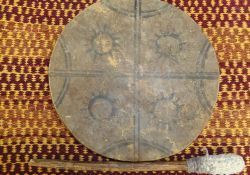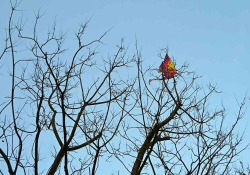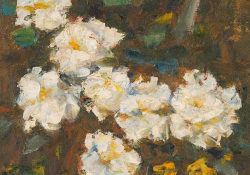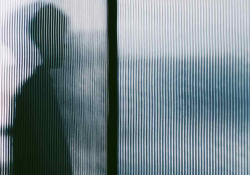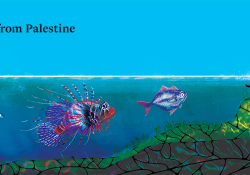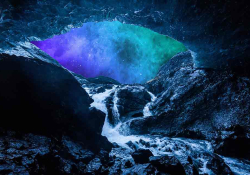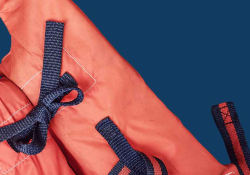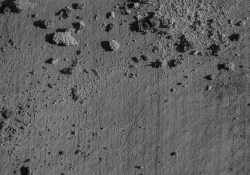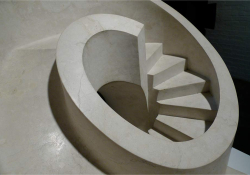Three Poems in Mapuzungun, Spanish, and English
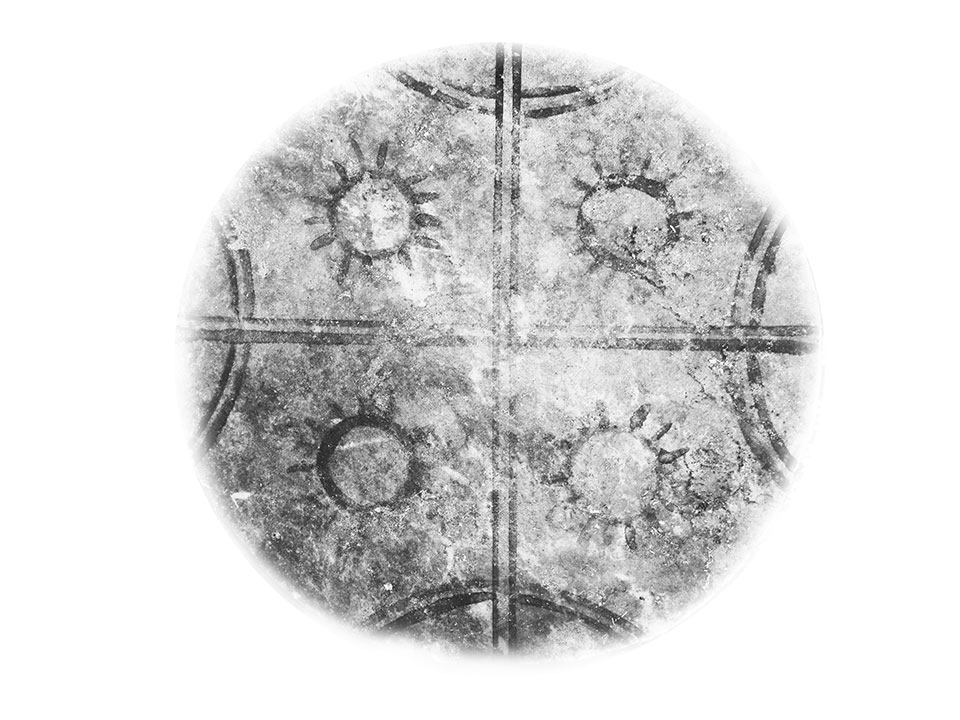
[1]
feichi lali mülen ñi nontual katrütuleufün
feichi lali mülen ñi nontual katrütuleufün
chem trewa ngiyulaenew, nielan trewa
trongli trewa nümüalu ñi llükanten
amuay ina inche
kushe müleay nontuwe mew
eluafiñ epu llanka
ñi nontuaetew
ti pu kura folilentuel
ñi kütikun mew
ñi pütra mew
ifümüchikekura kutranpiwkelelu
wirarün pepi wirarünoel
feichi ñi pu nge yifüingu
ka inche koilatufun ñi mongen
elutukuafiñ tüfa
yom nielaay chem no rume
mupiñ kechi pu külleñu
pepi pelafilu ñi llumümel ta ti mongen
amulu
pu alwe ñi furi mew
kintualu pu düwen
pu lalün
pu metawe
pu tapül
falilulüay kushe ?
prayu ñi trewa iñchiu
nontuwe pinguzay rupanantü
ngulu mew
fentepuyu
müley ñi müleael ñi pichilamngen tie mew
müley ñi müleael
ti lan pepi ngelay kiñe chem no rume ti kiñeishim
iney wiri kütral
fey nieay pu pefalañken pu nge mew
yom pu refnge
kintuayngu inche mew
entuenew pu wayun
kolotuwüenew ti pu changüll mew
kiñe choikepünon
üiay kütral wente kallfükekura
winüngkü piwketuyu
mollfün mew inche ñi lamngen wiriay
kiñe kultrun ankawenu
feymew kimlayan
kiñe kawellungeli
ka kiñe neyüngeli
kurufngele kiñe trutruka
tripaayu wirafülu
püdümlu leufü ñi puwangelen
ka awün mew
kimuan kiñetu
chem ngey ngelu kiñe kona leflu kisungen lan mew
chem perimontu iüfueyew
wiñoyu mallin mew
kütral mew niey ti che
pu kuyulchalla ka küyen
pu alamo ñi filltapül wilüfülu
feymew konümpafiñ
fentren kamapu
latuan
pu barrio rukawe
tremlu uyülonkon mew
waria afpun mapu mew
pu nylonwallka ka pu wangelen tie mew
pu cable kompuchepelomtuwe
Cuando me muera deberé cruzar el río
Cuando me muera deberé cruzar el río
Qué perro hará de guía si no tengo
un perro flaco que olerá mi cobardía
irá a mi lado
Y estará la vieja en la balsa
Le entregaré dos llankas
para que me cruce
Las piedras arrancadas de cuajo
de mi garganta
de mi estómago
crecidas en los dolores
en los gritos que no pude gritar
cuando se agrandaban mis ojos
y hacía que vivía
Entregaré esas piedras
y no habrá más
seguro lágrimas
porque no pude encontrarle el secreto a esta vida
porque me fui
detrás de los fantasmas
buscando tramas
y arañas
y cántaros
y hojas
¿reconocerá la vieja su valor?
Subiremos con mi perro
La balsa se deslizará en la tarde
hacia el oeste
Arribaremos
Y tiene que estar allí mi hermana menor
tiene que estar
no puede ser la muerte una nada para un pájaro
para quien ha pintado con pinceles el fuego
Ella tendrá cicatrices visibles en los ojos
sus ojos más certeros aún
hurgarán en mí
hasta sacarme las espinas
me dibujará el rostro con sus dedos
una huella de choique
arderá el fuego sobre piedras azules
comeremos corazones palpitantes
y mi hermana pintará un kultrun en el aire
con la sangre
Después no sabré
si soy un caballo
o un resuello
si es el viento una trutuka
y saldremos galopando
a desparramar las estrellas del río
y en el movimiento circular
sabré de una vez
qué es ser un guerrero que corre libre hacia la muerte
qué visiones lo ardían
Regresaremos al mallín
y habrá la gente alrededor del fuego
las ollas tiznadas y la luna
y cada hoja de los álamos brillando
Entonces me recordaré
de ellos tan lejos
y moriré de nuevo
de los barrios planes de vivienda
creciendo en vértigo
en la ciudad con horizonte
las bolsas de nylon y las estrellas allí
entre los cables del alumbrado público.
When I Die I Should Cross the River
When I die I should cross the river
But what dog will guide me as I have none?
A skinny dog that smells my cowardice
will walk at my side
And the old lady will be in the boat
I’ll give her two bits of copper
to take me across
Stones uprooted
from my throat
my stomach
cultivated in pain
in the shouts I couldn’t hurl
when my eyes went wide
and made me alive
I’ll hand over those stones
and nothing more
but tears
because I failed to find life’s secret
because I went
after ghosts
chasing stories
and spiders
and jugs
and leaves
will the old lady know their worth?
My dog and I will climb aboard
The raft will slide into the afternoon
heading west
We’ll arrive
and my little sister needs to be there
she has to be
death can’t be a nothingness of fire
painted by paintbrush for a bird
She’ll have visible scars in her eyes
eyes more focused than ever
that’ll delve into me
pull every thorn from me
trace my face with her fingers
a rhea’s footprint
the fire burning over blue stones
we’ll eat beating hearts
and my sister will paint a kultrun in the air
with the blood
Afterward I won’t know
if I’m a horse
or a gasp
if the wind is a trutruka
and we’ll go galloping
to cut loose the stars from the river
and in the circular movement
I’ll know at once
what it is to be a warrior running freely towards death
what visions burn in him
We’ll return to the green plain
and folks will be gathered around a fire
blackened pots and moon
and every leaf on the poplar shining
So I’ll remember
them from afar
and die once more
of the flat neighborhoods of home
rising in vertigo
from the city’s horizon
plastic bags and the stars there
between the cables of the illuminated public.
NB: A trutruka is an indigenous horn of the Mapuche people.
[2]
pu zomo engu mawün
Fey chi pichikezomongeiñ amuiñ
montulngeiñ lepün mew
antü inantükueiñ mew kawellutu
welu küyen elürpaeiñ mew ñi pu ko nepeiñ mew
tüfey pun peiñ kiñe lom metawe, llawe pelaiñ
pu machikimelpeyel
llegiñ, feley, mülum mew
pepikawküleiñ, pu wampu ñi leliael ñamkülelu
ngenoshumelkezomo chiway mew
mawünwünn mew tapülfüna iñ kug
witrañpramlu wenu mew
keipüleimew ayün püñeñaimi
trapelngelaimi, llowaimi,
nge treifunakümlu mew, ñuin ayen ñi llallitun
mülekayay chi fainu eimi mi putramew
llükaalu am ñukengealu
kom kizulenche ñi ñuke miawlu rupu mew
wau mangitripalu chafozüaeimew
pu ishim zungulalu mew
traigen mew chem pepi pilaymi
welu llowaimi ñi wütruael pichi ñochi
chaliaimi, piaimi nien mawün
alütripaimi alüpramülewe mew
lafken mew wenu mew
ka ngütrawtuay lafkenkachu pu lom mew
Iñche kimün pu zomo turpu kamapukünuwlay
nülafingun chi wülngiñ ñi pu chirif
ka ngümaingün
ülpuingun chi fochon ekull
kütrüfingun, kafliftuyngün, katrüyngun pu cebolla
ngütantuyngün , lepüyngun, runkayngun pichikeche mew
küchayngun
chew kimüyngun
ka zomo rulpayngun ñi mongen
ñomümishimüyngun
ayülayngun ñi weyun ñi eluzungunon
pütokoy chi kaiñe
elkayngun ñi mülenon ñi mollfun amulewelalu anümche mew
pu zomo külliyngün ailiñ nütram mew, likan nütram mew
katakonuyngun rangiñ kaiñe
iñche nütramrakizuamün
nütramwitranentun perkan mew
pepi montulün aimeñ nütamtakuñman
atahualpa ñi mamüll üikülelu
tüfa nütram eluafiñ tüfeichi zomo
wütrungentulu, tüfeichi zomo katrütufingun ñi pu ishim
kiñechi febrero mew, iñche mülen tüfey mew mapu mew
kom mawün müley
kiñeazngefuy kai kai ñi illku wente iñchiñ
wutrengey ko
pu kushe petulüyngün chi ngillatun
mülen ñi femagel
chumül müten yeiñ
trañmaleufü katrütufinge rume mawün
mapu ptokolay mapu rulmelay
chem no rume ngelaiñ
tiza wiri ñamümlu ko mew
pu pataka tripantü mew
chi antü nülakünuy pu tromu
meridiana epulef ñi füchazüngun
witrañpramuy kawellu taüll
rakizuamün kallfuwenu pepingeafuy
tüfa relmu kallfuwenu pepingeafuy
pu kawellu witrünkülelu
moro zaino pangare tostado bayo
chalifingun afmapu
küme nümüi mapu rupan füchamawün
las mujeres y la lluvia
cuando niñas vamos sueltas por el patio
y el sol nos persigue de a caballo
pero la luna implacable nos va dejando sus mareas
hasta que nos desvela
y esa noche encontramos
un cántaro
en lugar de la cintura
aprendices de machi las mujeres
nacemos así al rocío
listas para mirar los barcos que se pierden
descalzas a la neblina antes de que amanezca
nervaduras de lluvia nuestras manos
levantadas al cielo
te salpicará el amor
parirás sin amarras
y recibirás con ojos arrasados
la visita intermitente de la risa
permanecerá la llovizna en tu vientre
porque no te atreverás a ser la madre
de todos los desamparos
que andan por la calle
caudal desubicado te desarmará
en pájaros que no saben hablar
a borbotones no podrás decir
lo que quisieras
mejor dejarlo que se derrame despacio
decir
permiso tengo lluvia y alejarse
a una altura al mar al cielo
hasta que vuelvan a apretarse los musgos
en las profundidades
yo conozco mujeres que nunca se alejan
le abren la compuerta a sus gorriones
y lloran
enjuagan el trapo mojado lo estrujan
limpian con él la tabla
pican cebollas
igual hacen las camas
barren la casa peinan a los chicos
igual lavan
dónde aprendieron
hay otras que se pasan la vida domesticando
a sus pájaros
porque no quieren que irrumpan sin aviso
y los beba el enemigo
guardan su sangre su ausencia quietos en el fondo
y apuntan con palabras nítidas de cuarzo
que van a dar al blanco
yo a las palabras las pienso
y las rescato del moho que me enturbia
cada vez puedo salvar menos
y las protejo
son la leña prendida de atahualpa
que quisiera entregar a esas mujeres
las derramadas las que atajan sus pájaros
una vez en febrero yo estaba ahí
en el campo
y se llovía todo
parecía la furia de kay kay sobre nosotros
el agua estaba helada
las ancianas prosiguieron el ritual
y tuve que quedarme
hasta cuándo aguantaremos
pará la lluvia dios es demasiada
no la bebe la tierra se atraganta
y somos casi nada
trazos de tiza borrados por el agua
después de unos siglos el sol abrió las nubes
la voz gastada de meridiana epulef
levantó el taill del cauelo
pensé que dios podía ser ese arco iris
o los caballos en fila
moro zaino pangaré tostado bayo
saludando al horizonte despejado
huele tan bien la tierra después del aguacero
women and the rain
as girls we’re loosed through the patio
and the sun gallops after us
till the implacable moon hits us with her tides
and we go sleepless
and that very night find
a jug
in place of a waist
machi apprentices we women
are born like this to dew
poised to watch over boats that lose their way
barefoot in the mist before daybreak
our hands ribbings of rain
raised to the sky
love will splash you
you’ll give birth unmoored
and receive with wet eyes
intermittent visits of laughter
a drizzle persisting in your belly
because you’d never dare to be mother
to all the abandoned
walking the street
you’ll be disarmed by the odd flood
of birds that can’t speak
in flowing terms and you’ll be unable to say
what you want
so better to let it spill out slowly
to say
forgive me i have rain and then depart
to the heights of the sea the sky
till the moss tightens again
in the depths
i know women who never leave
who open the gate to their sparrows
and weep
who rinse a wet rag wring it out
clean the counter with it
dice onions
and just the same make every bed
sweep the house comb their kids’ hair
wash right there
where they learned
still others go through life domesticating
their birds
so they don’t barge in without notice
and fall to the enemy
women who motionlessly guard their blood their absence down deep
and take aim in clear words of quartz
that hit their mark
i think of words
and save them from the mildew that muddies me
though each time i can save fewer
but i protect them
they’re atahualpa’s lit firewood
that he wanted to give these women
the spilt those who curb their birds
one february i was there
in the field
and it poured down
on us like kay-kay’s rage
the water was icy
the matriarchs kept on with the ritual
and i had to stay there
as long as we could endure
dear god stop the rain it’s too much
the land can’t drink it chokes
and we’re almost nothing
chalk-tracings erased by the flood
a few centuries later the sun split the clouds
the tired voice of the split meridian
raised the sacred song of trees
and i thought god could be the rainbow
or the row of horses
black brown tan pony
saluting the cloudless sky
the earth smells so good after a downpour
[3]
hijas
I
yo andaba
tan derramada por la vida
dando lástima imagino
qué dirían de mí
tan regalada al mar
y me nacieron
dos hijas madrugadas
de innumerables ojos
brillantes impacientes
vinieron a juntarme
me ordenaron los días
en estantes de leche
trivisol
y vitina
sin consultar siquiera
me invadieron
II
nacieron
y los peces relampaguearon en la oscuridad
y hubo fauces por los cuatro costados
aprendimos el lacerante miedo
de no tener pan
y abrigo
para ustedes
III
qué resistencia de personitas
al acecho
de un resquicio una fisura
por donde filtrar su luz
su desbandada luz
su verdad insoportable
justo a nosotros
que nos hacemos los fuertes
justo a nosotros
que nos quedan grandes
IV
y cuando ya no puedo?
cuando el viento me arroja paladas de ceniza
y ya casi me tiene
ahí
apagada
abren a gritos la puerta más pesada
pasan a risas sobre el silencio más sordo
y me traen ¿para mí?
una flor amarilla de esas
que pegotean su perfume en el baldío
se van
tras el amigo nuevo que junta cascarudos
yo me quedo así
recordada
como una piedra
quién lo diría
voy a estar aquí
cada vez
que vuelvan
daughters
I
i walked
through life so defeated
i’d pitifully imagine
them saying of me
so lost at sea
then two dawn daughters
were born to me
with brilliant restless
innumerable eyes
they came to put me back together
organized my days
in shelves of milk
enfamil
and vitina
without even asking
they invaded me
II
they were born
and fish flashed in the darkness
and there were jaws in all four corners
we learned the biting fear
of having no bread
or shelter
for you
III
what resistance by such little people
lying in wait
in a crack a fissure
through which filters their light
their disordering light
their insufferable truth
just for us
making us stronger
just for us
who feel dwarfed by them
IV
and when i can’t go on?
when the wind slaps me with blows of ash
and it has me
there
near extinguished
they shout open the heaviest door
break out in laughter over the most deaf silence
and they’re brought to me to me?
one of those yellow flowers
wet with perfume in uncultivated land
they go
following a new friend who collects horn beetles
i stay that way
remembered
like a stone
who would say
i’ll be here
every time
you return
Comodoro Rivadavia, Argentina
Translations from the Mapuzungun
By Liliana Ancalao
Translations from the Spanish
By Seth Michelson



